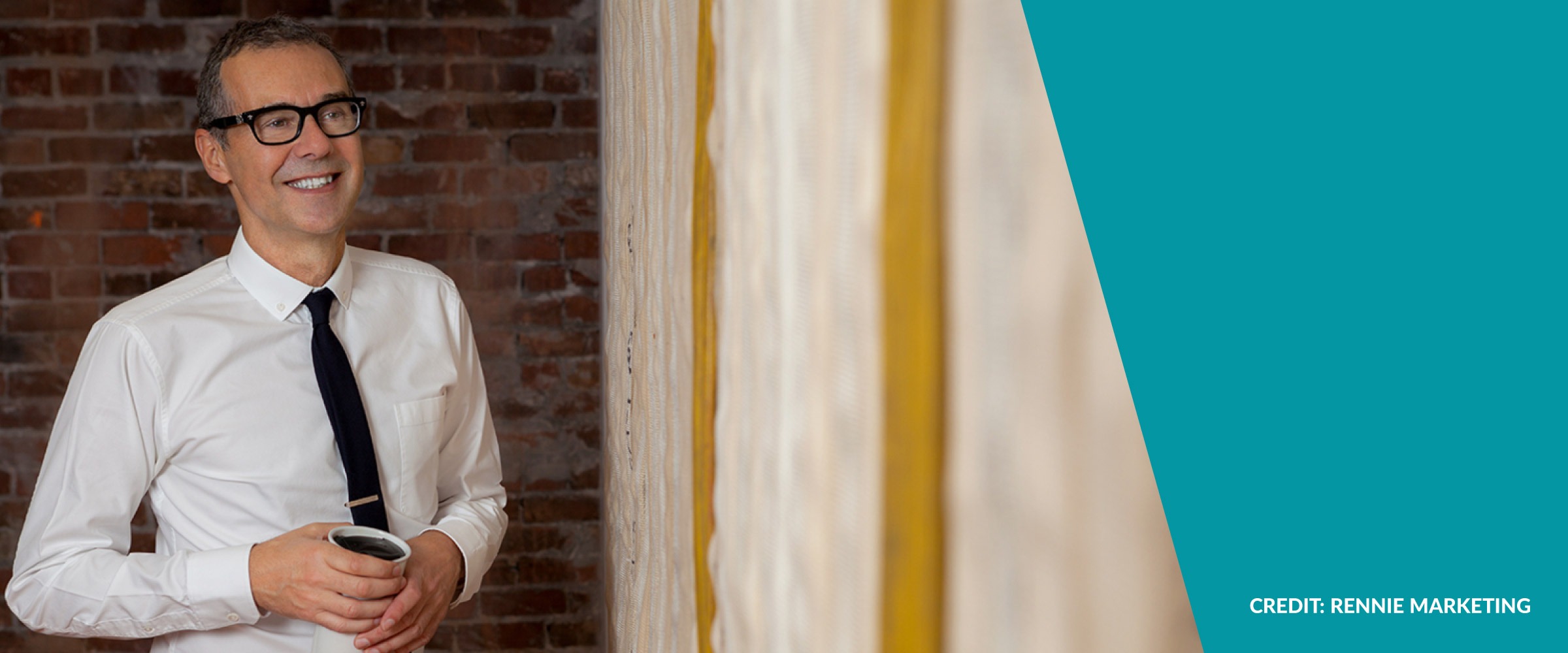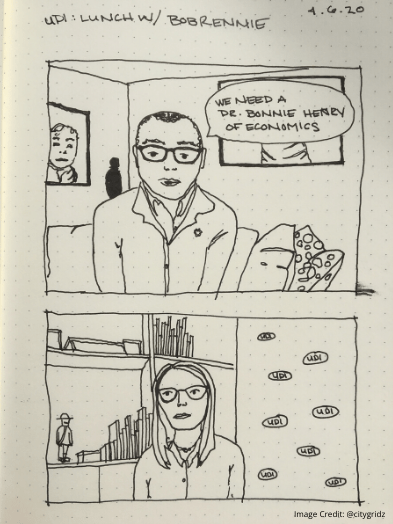By Anne McMullin
In a world dominated by anxiety, fear and negativity it is refreshing to hear Bob Rennie’s voice of optimism.
I have always enjoyed our lunches together – but on Thursday we opened up our virtual conversation to nearly 1,000 UDI members who joined us on Zoom. Anyone with an appetite to hear from a Vancouver visionary was not disappointed.
The undercurrent of our conversation was Vancouver real estate but with so much happening in the world we touched on everything from COVID and racism to geopolitics and economics.
What I love most about Bob is that he is realistic. No sooner does he say “I’m scared to death” about all the troubles in the world than he turns to his own mix of optimism and solutions.
Yes, we are at a watershed moment in history and uncertainty abounds, but Bob is a farsighted real estate marketer who remains confident in Vancouver’s fundamentals as a place to live, work and invest.
Here are a few of my key takeaways:
Will we rebound from this crisis?
Yes, he believes the development industry is crucial to British Columbia’s successful rebound. Although things are somewhat stalled right now, Vancouver will regain its position as an attractive place for Canadians and new Canadians to live and invest. “Those 11,000 Amazon workers are still coming,” he says. “We have 75,000 tech workers in this region. We’re up almost 50 per cent over the last five years. Are we poised to become a tech centre? The more I see what’s going on in America, I think so.”
What’s different about B.C.?
Bob says we will emerge from this crisis with a lot to promote including the way British Columbia has handled the pandemic, with a success rate that is among the finest in the world for our size. When it comes to liveability, walkability, climate, education and healthcare, B.C. is in an enviable position.
Dr. Bonnie Henry was the right person for the health crisis. Do we have the right people for the economic crisis?
Bob and I look to B.C.’s provincial health officer with a sense of admiration and appreciation for leading us through the health crisis. “We need a Dr. Bonnie Henry of economics,” says Bob. “We need a Dr. Henry that is passionate on housing needs but is very careful that we are taking care of business and creating jobs so that we have the taxes to have a balanced, civil society.”
Advice for others?
“Relationships are going to get you through,” he says. “We are going to get through this. The only silver bullet I know we have is our relationships. Our most valuable currency is our relationships.”
How does he stay positive?
Among other things, he calls five people in the morning and five in the afternoon, often while out for long walks. “I cherish my relationship with the industry,” he says. It’s not about sales, it’s about human connection.
What does the future look like?
No one knows for sure but Bob says home builders will still be constructing presentation centres and welcoming future buyers. But those potential buyers are likely going to do a lot more research online before they walk through the doors of a sales office. As for properties themselves, Bob says builders shouldn’t use our COVID experience to rush through expensive design changes such as adding extra elevators to accommodate social distancing. But he can clearly see a need for more parcel delivery rooms in buildings, more USB charging stations in suites and more home-office liveability features.
Regulatory delays are a huge challenge. How can governments improve things?
This is where Bob shines. He says the federal and provincial governments should create financial incentives for municipalities which offer speedy approvals for rental suites, social housing or affordable apartments. For example, a municipality could earn $10,000 for every rental unit it approves within a 12-month period. “Those are the type of solutions we need to meet the challenges of the politicized supply of housing.”
Optimistic, confident and thoughtful. That’s Bob Rennie. But perhaps the most profound thing he said during our lunch was this: “Our addiction to yesterday has to stop. We all want yesterday back but it’s gone.”
Our focus now is creating a stronger tomorrow.








